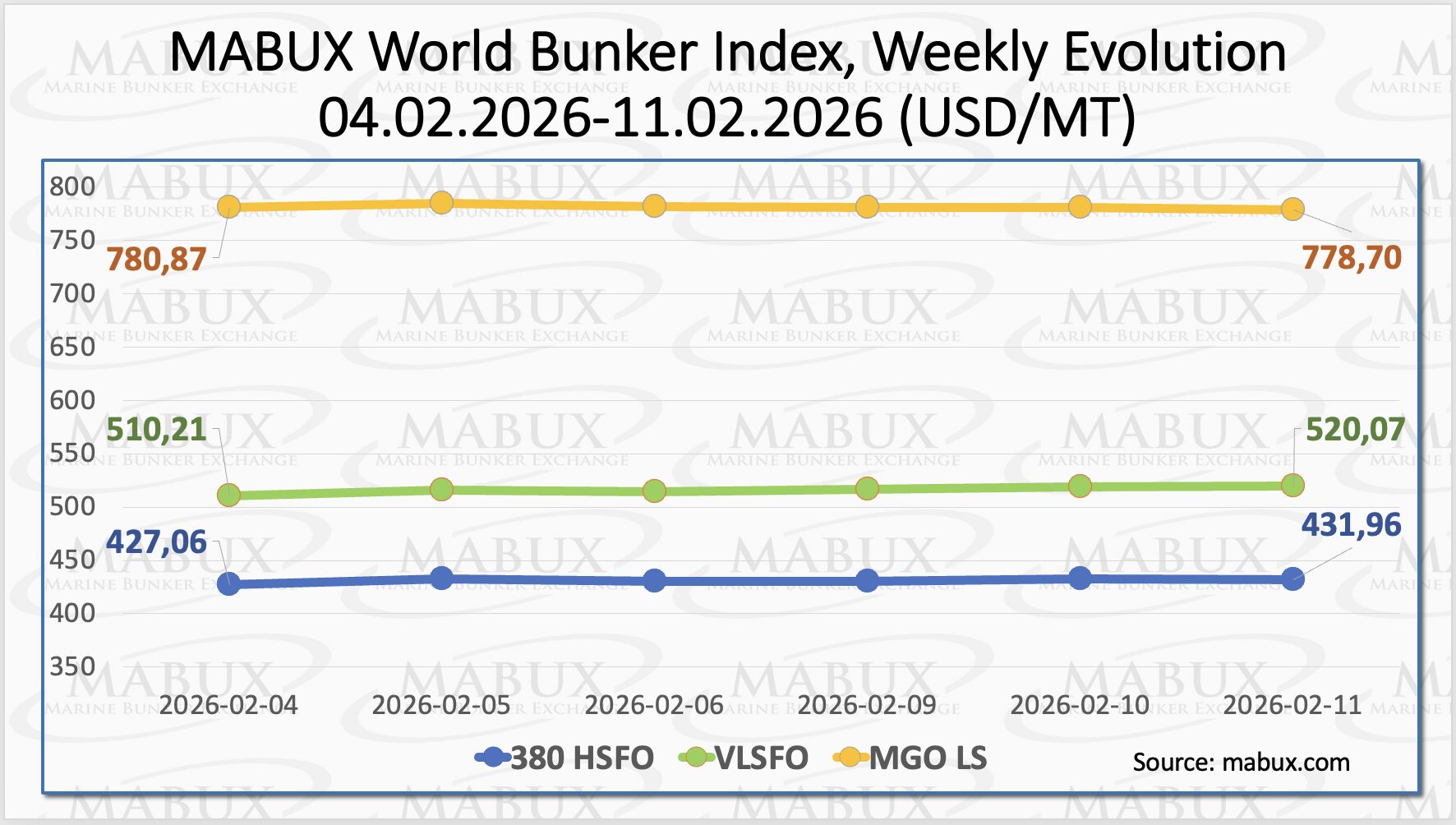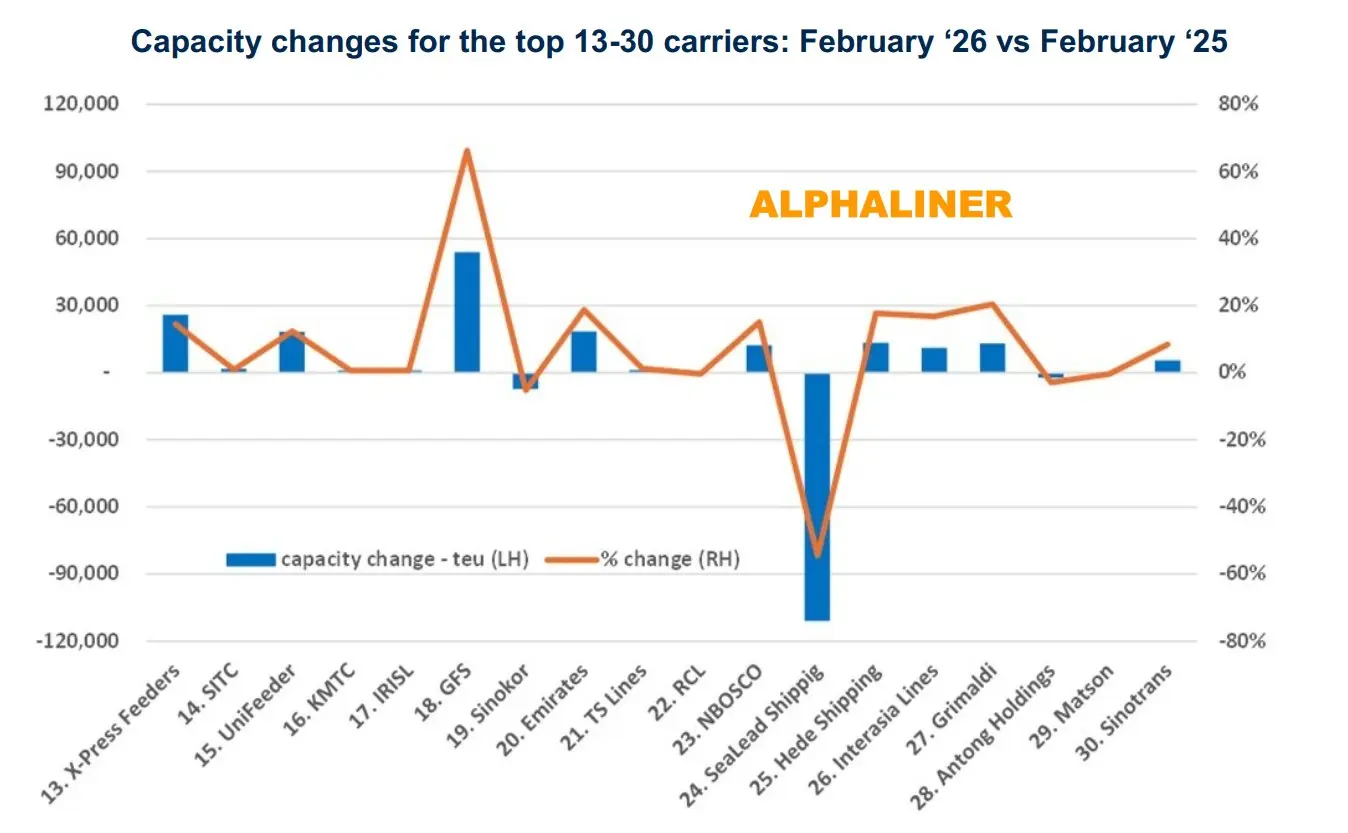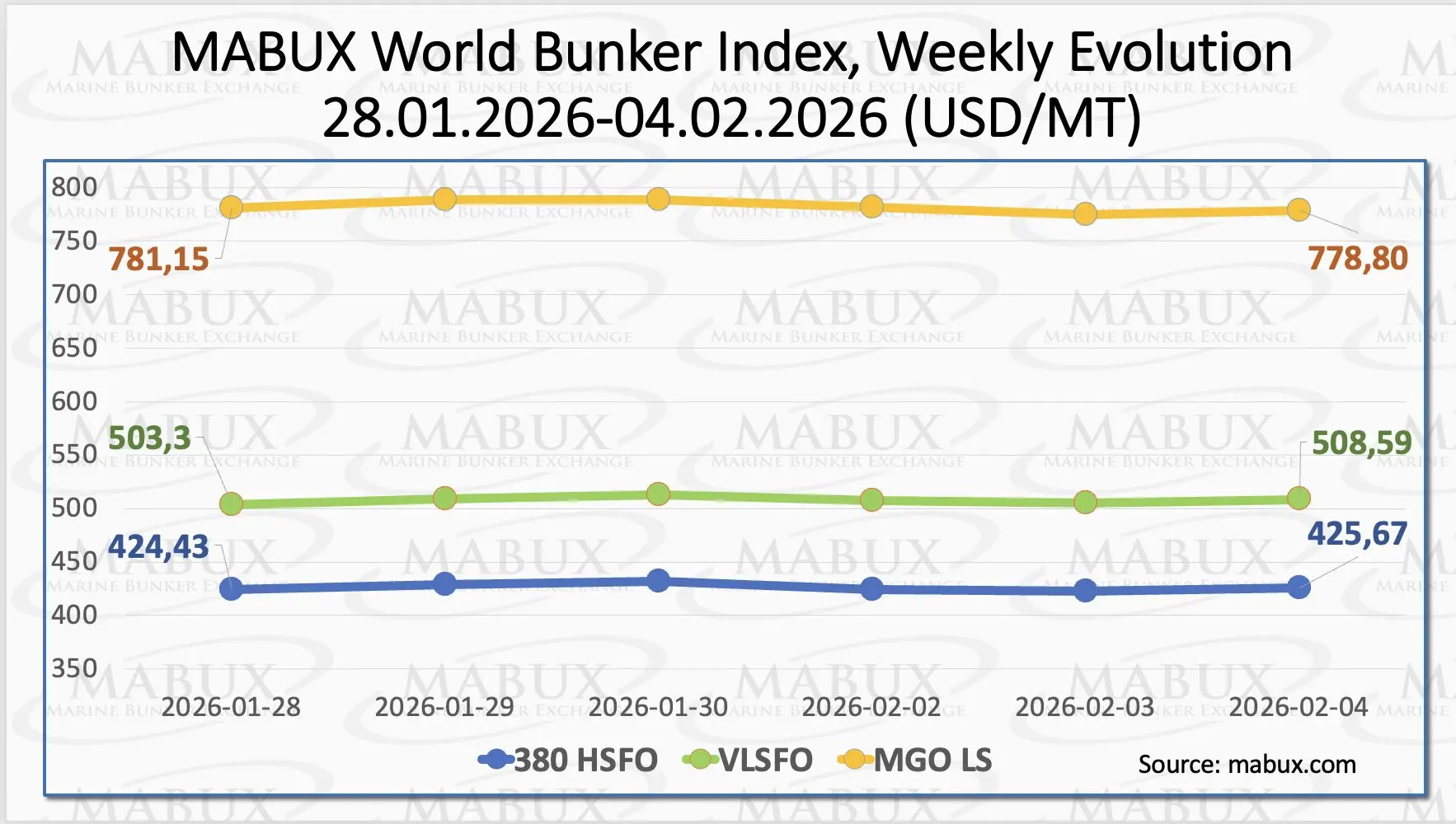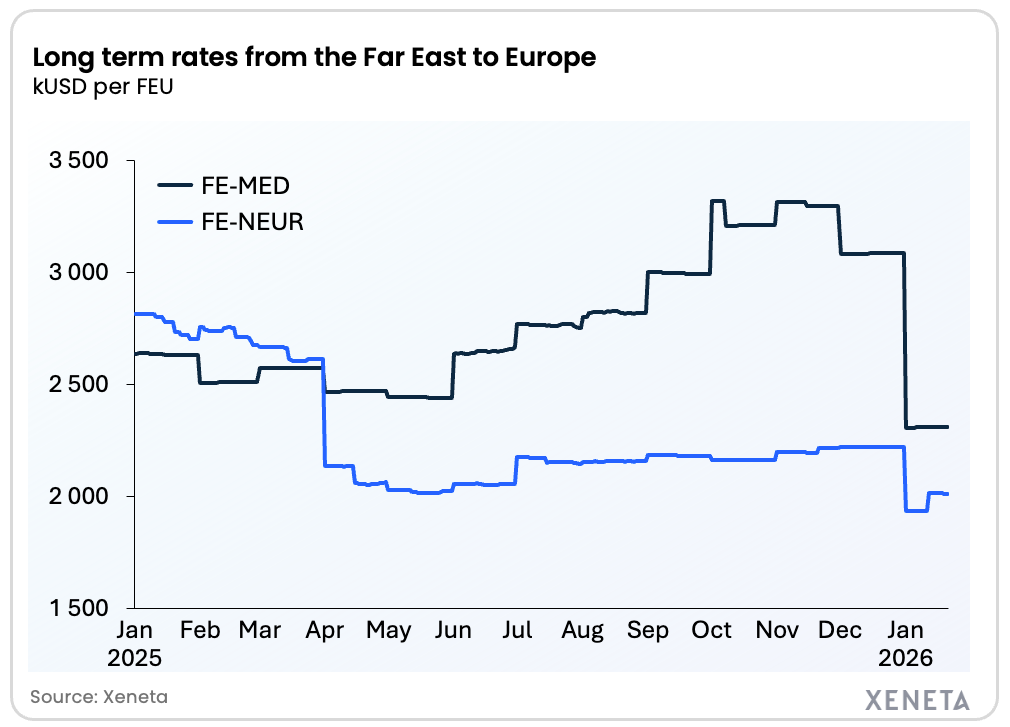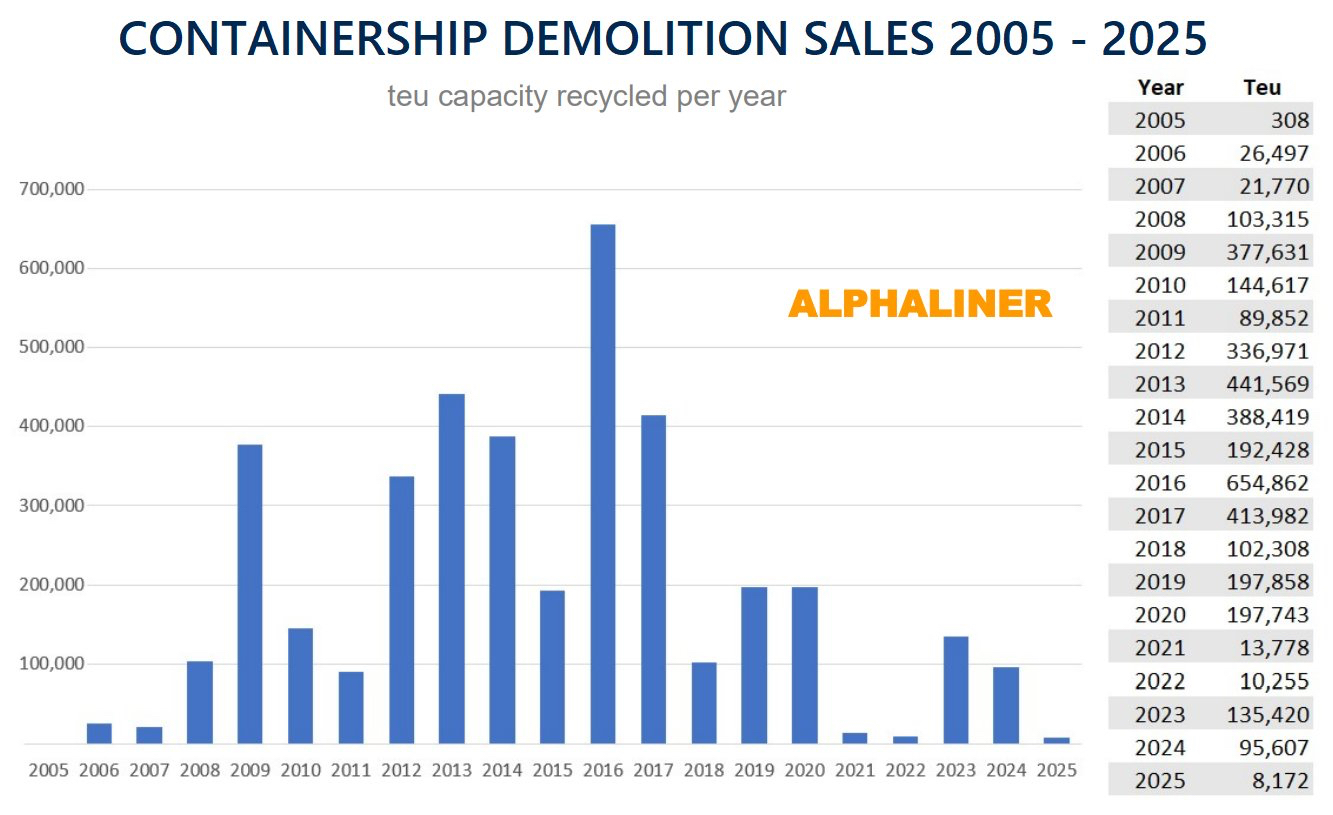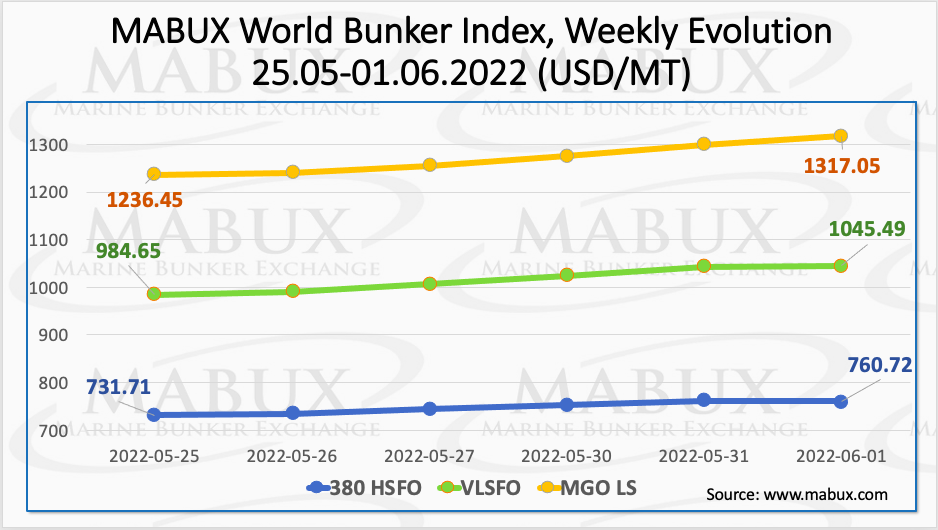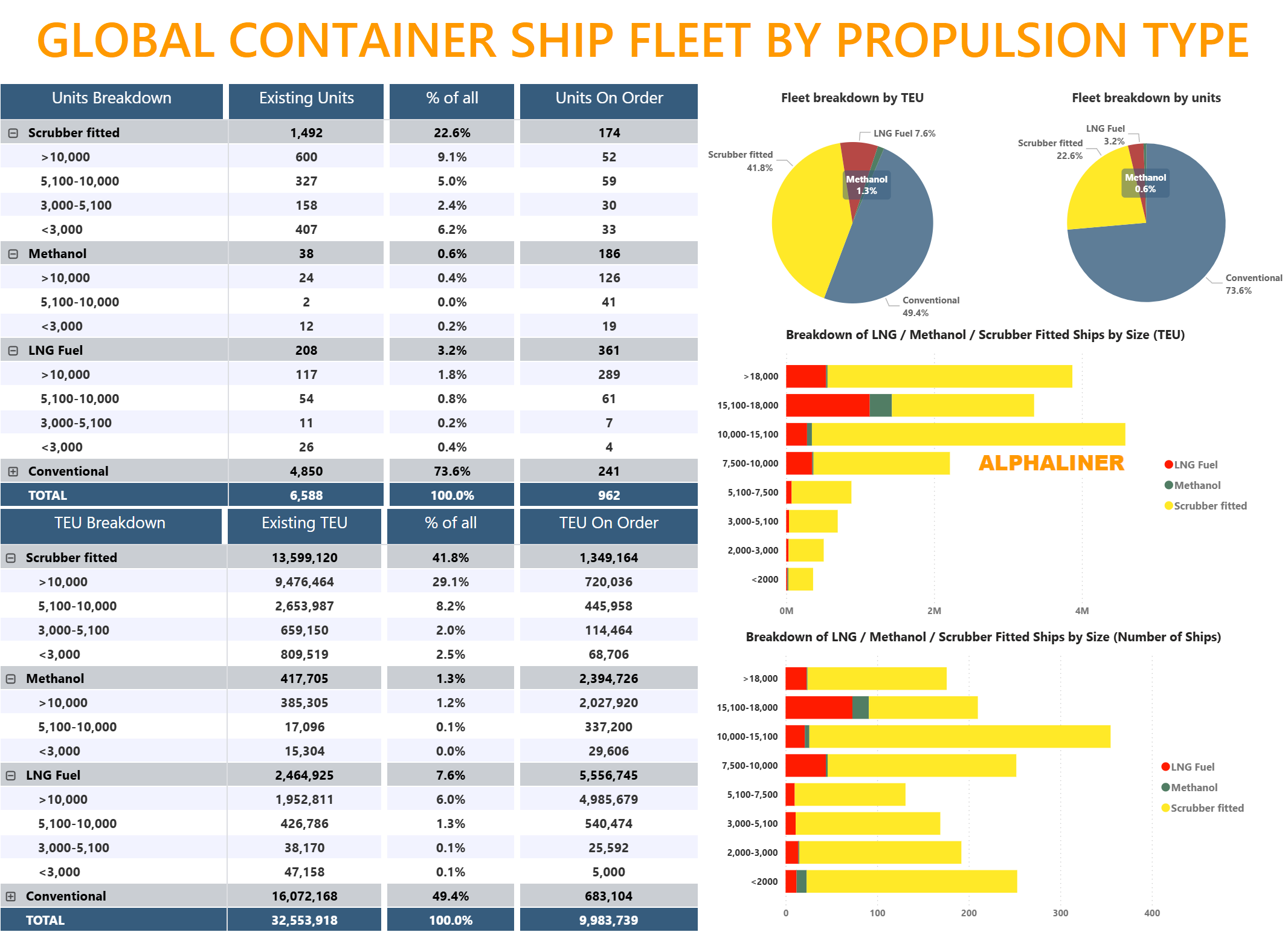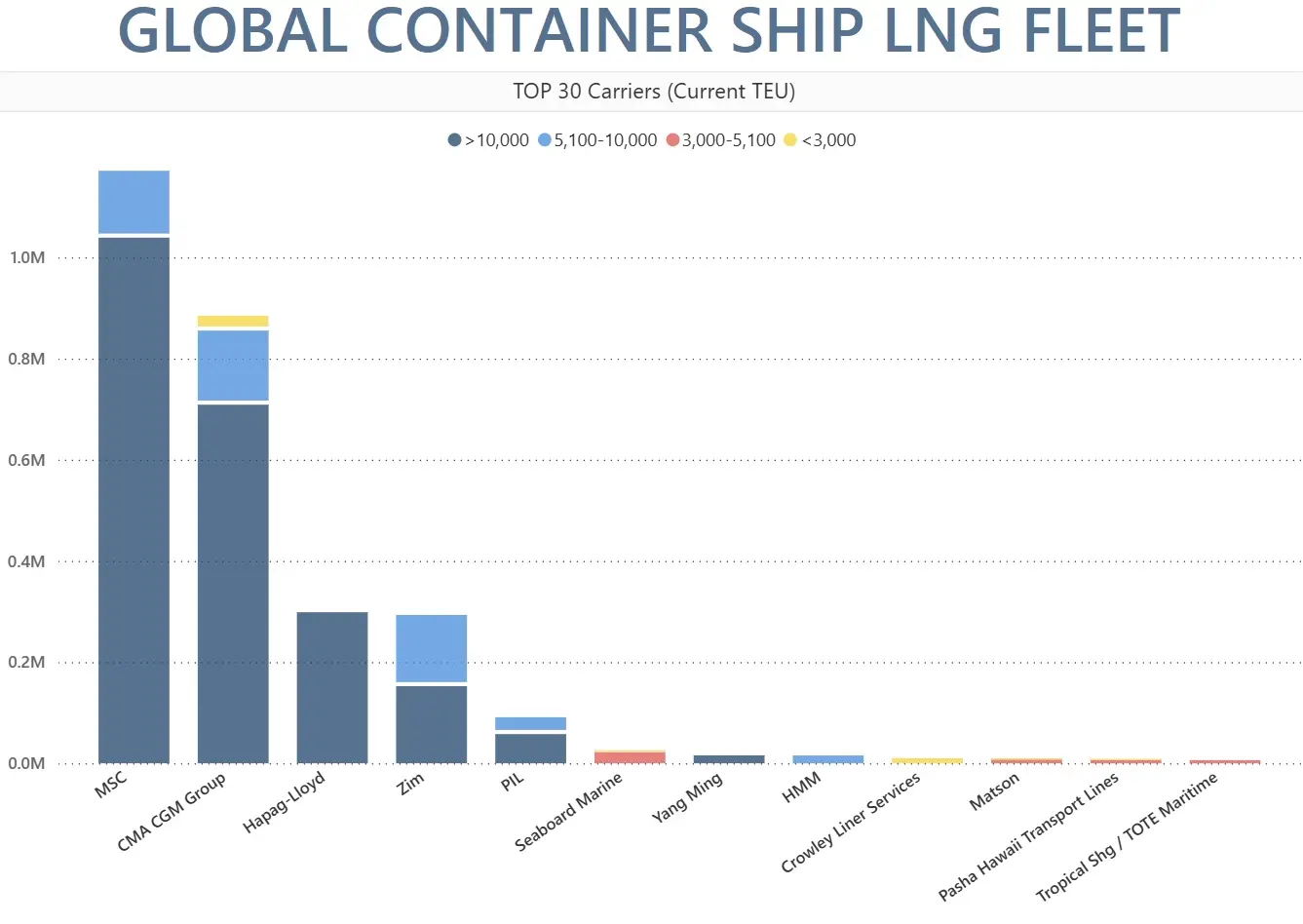
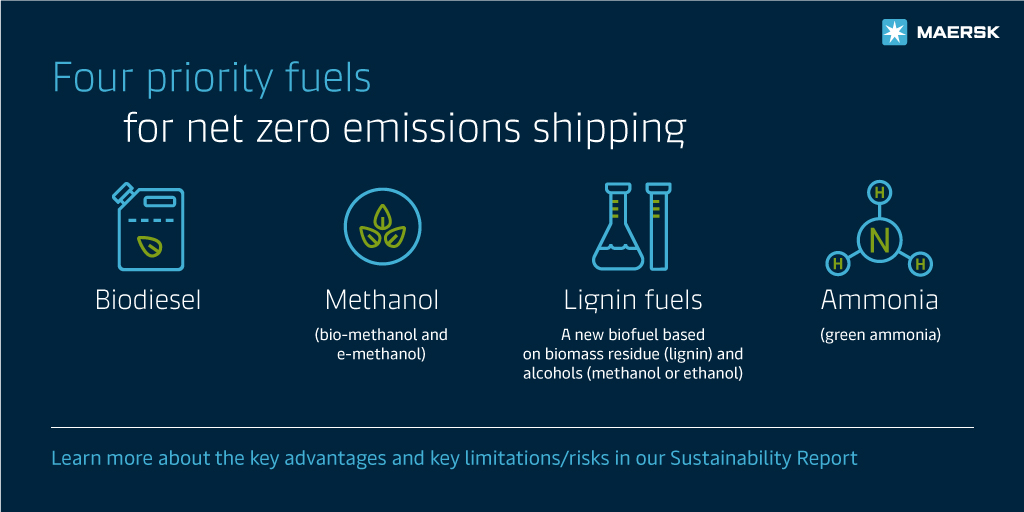
Maersk has accelerated its decarbonization drive by announcing it will operate the world’s first carbon neutral liner by 2023, 7 years ahead of schedule (Really great news for a hard to abate sector!).
Maersk is also making a commitment for future newbuilds!
From a press release: “All future Maersk owned new buildings will have dual fuel technology installed, enabling either carbon neutral operations or operation on standard very low sulphur fuel oil (VLSFO).”
Most vessels on the high seas currently operate on VLSFO, the carbon intensive byproduct of the industry’s IMO 2020 transition to low sulfur fuels.
At Clipper Data, we found VLSFO made up 68% of global marine fuel demand in 2020 (up from 12% in 2019)
Running a containership on alternative, carbon conscious marine fuels by 2023 is AMBITIOUS.
There are no shortage of hurdles for an industry-wide transition to eco-conscious marine fuels (cost, supply and supply infrastructure, green production, safety, spec issues, etc)
This is why Maersk left itself some wiggle room here. “Dual fuel technology installed” is important. The ability to consume low carbon fuels does not mean a vessel WILL consume low carbon fuels, especially if those fuels are not cost competitive (which most currently are).
From Maersk: “While the vessel will be able to operate on VLSFO, the plan is to operate the vessel on carbon neutral e-methanol or sustainable bio-methanol from day one.”
This pledge is great! But this is only one newbuild (to say nothing of the vessels currently in service)
Amid high eco-fuel costs+nascent supply infrastructure, a dual-fuel vessel will provide short-term flexibility to Maersk’s long-term goals:
Maersk wants to be net zero by 2050, and achieve a 60% relative CO2 reduction by 2030
Both are more ambitious than IMO standards
Even if the 2023 dual-fuel Maersk liner consumes VLSFO when launched, the flexibility to transition to low-carbon marine fuels in the future is key. Assuming a 20-30yr vessel lifespan, this will allow eco-fuel consumption as the new fuels reach scale/get cheaper
With this announcement, Maersk is in the vanguard of CO2 abatement on the high seas. This announcement should encourage other shipping companies to take concrete steps towards decarbonisation
Global shipping makes up approx 3% of global CO2 emissions, but the industry is without a consensus on what eco-fuel will dominate shipping in the years ahead
Follow for updates on global shipping decarbonisation!
Source: Josh Lowell
Follow Josh on Twitter:
[tfws username=”JoshLowell” height=”700″ width=”350″ theme=”light” color=”#FAB81E” tweets=”2″ header=”yes” footer=”yes” borders=”yes” scrollbar=”yes” background=”yes”]

